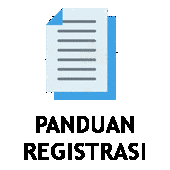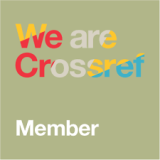Literasi Ekonomi Islam: Potret Pada Alumni IAIN Kerinci
Abstract
This study aims to look at Islamic economics literacy on alumni of FEBI IAIN Kerinci, both in terms of knowledge, understanding and ability to apply attitudes (actions) from Islamic economics material that was studied during college into everyday life. This research uses a qualitative descriptive method, relying on verified data from interviews and observations on alumni of FEBI IAIN Kerinci as the main source, which is analyzed using data reduction, data display and data verification methods. The results of the research show that the Islamic economics literacy on alumni of FEBI IAIN Kerinci shows that some of them have knowledge and understanding of Islamic economics at the Sufficient Literate level, and also some of them also have knowledge and understanding at Less Literate, and even some of them have knowledge and understanding is at Not Literate. This is how it is implemented, it appears that some have been able to apply it in their daily economic activities well, but others are still not able to apply it in their daily economic activities.
Keywords
Full Text:
PDFReferences
Abdullah, A. (2023). Achieving Islamic Financial Literacy in Malaysia: Issues and Challenges. In Lecture Notes in Networks and Systems (Vol. 487, pp. 889-896). https://doi.org/10.1007/978-3-031-08084-5_64
Alharbi, R. K. (2022). Impact of religiosity and branding on SMEs performance: does financial literacy play a role? Journal of Islamic Marketing, 13(12), 2717-2741. https://doi.org/10.1108/JIMA-08-2019-0162
Arzam, A., Fauzi, M., Efendi, F., & Sulastri, W. Islamic Crowdfunding: A Review Literature. Review of Islamic Economics and Finance, 6(2), 171-186. https://doi.org/10.17509/rief.v6i2.62827
Bank Indonesia. (2002). KAJIAN EKONOMI & KEUANGAN SYARIAH.
Bustami, A. W., & Fauzi, M. Portrait of Islamic Economic Literacy on Students of Department Sharia Economics IAIN Kerinci. Jurnal Iqtisaduna, 9(2), 288-300. https://doi.org/10.24252/iqtisaduna.v9i2.41533
Cendra, C., Fauzi, M., Arzam, A., Novia, A., Hulwati, H., Bustami, Y., ... & Mursal, M. (2020). The Effect of Income with Household Consumption on The Welfare of Dodol Potato Businesses Assessed From Islamic Economic Concept. Dinar: Jurnal Ekonomi Dan Keuangan Islam, 7(2), 81-93. https://doi.org/10.21107/dinar.v7i2.11214
Chorisnawati. (2022). Analisis Tingkat Pemahaman Literasi Keuangan dan Inklusi Keuangan Syariah pada Mahasiswa Fakultas Ekonomi dan Bisnis Universitas Muhammadiyah Makassar.
Dewi, M. K. (2021). Enhancing Islamic financial literacy through community-based workshops: a transtheoretical model. Journal of Islamic Accounting and Business Research, 12(5), 729-747. https://doi.org/10.1108/JIABR-08-2020-0261
Dinc, Y., Çetin, M., & Jahangir, R. (2023). Revisiting the concept of Islamic financial literacy in a boundaryless context: cross-country comparison of Islamic financial literacy. Journal of Islamic Accounting and Business Research, 14(8), 1364-1382. https://doi.org/10.1108/JIABR-02-2022-0043
Efendi, F., Candra, A., Mardianton, M., Fauzi, M., Ilham, E. M., & Sumarni, I. (2023). The Concept of Islamic Economic Fiqh in Mu'amalah Perspective. Samara: Journal of Islamic Law and Family Studies, 1(1), 10-18. https://ojs.stai-bls.ac.id/index.php/sajilfas/article/view/70
Firdiana, E., & Fikriyah, K. (2021). Pengaruh Literasi Ekonomi Syariah terhadap Minat Mahasiswa Menabung di Bank Syariah. Jurnal Ekonomika Dan Bisnis Islam, 4(1), 99-109. https://doi.org/10.26740/jekobi.v4n1.p99-109
Fauzi, M., & Kurniawan, M. (2023). Muslim Prosperous Family (MPF) Consumption in Koto Tuo Ujung Pasir Village: Is It Consistent with Islamic Consumption Behaviour?. RISALAH IQTISADIYAH: Journal of Sharia Economics, 2 (1), 35-46. https://doi.org/10.59107/ri.v2i1
Fauzi, M., Efendi, F., Bundo, M., Eriawati, Y., & Rahmat, F. Tinjauan Literatur Terkini Tentang Wakaf. Jurnal Iqtisaduna, 9(2), 232-252. https://doi.org/10.24252/iqtisaduna.v9i2.41811
Hashim, C. N. (2013). Economics literacy among university students: A case study of International Islamic University Malaysia (IIUM). World Applied Sciences Journal, 28(6), 871-875. https://doi.org/10.5829/idosi.wasj.2013.28.06.1071
Hulwati, H. (2022). Kesejahteraan ekonomi islam: bukti dari asyarakat penerima manfaat badan usaha milik desa (BUMDes) karya dermawan dusun dalam. AN-NISBAH: JURNAL EKONOMI SYARIAH, 9(02). 375-409. https://doi.org/10.21274/an.v9i2.5930
Ichsan, N., & Yuda, E. K. (2023). Islamic Economic Literacy Level of Teacher In Al Tsaqafah Islamic Boarding School. Jurnal Ilmiah Ekonomi Islam, 9(01), 178-190. http://dx.doi.org/10.29040/jiei.v9i1.6731
Manisih, S. (2015). Urgensi Literasi Ekonomi Islam Pada Generasi Muda Muslim. Dialog, 38(2), 203-210. https://doi.org/10.47655/dialog.v38i2.45
Mendari, A. S., & Kewal, S. S. (2013). Tingkat Literasi Keuangan di Kalangan Mahasiswa STIE Musi. Jurnal Economia, 9(2), 130-140. https://doi.org/10.21831/economia.v9i2.1804
Nugraha, A. L., Sunjoto, A. R., & Susilo, A. (2019a). Signifikansi Penerapan Literasi Ekonomi Islam di Perguruan Tinggi: Kajian Teoritis. Islamic Economics Journal, 5(1), 147. https://doi.org/10.21111/iej.v5i1.3680
Nugraha, A. L., Soenjoto, A. R., & Susilo, A. (2019b). The Influence of Islamic Economic Literacy on the Purchasing Power of Unida's Students in Unit Usaha Unida (U3). In 7th ASEAN Universities International Conference on Islamic Finance (pp. 172-177).
Nugraha, A. L., Al Hakim, S., Jubaedah, D., Julian, A., & Athoillah, M. A. (2023). Islamic Economic Literacy: A Paradigma Economic Thought In Indonesia. Journal of Islamic Economics and Philanthropy, 6(1), 18-28. https://ejournal.unida.gontor.ac.id/index.php/JIEP/index
OJK. (2023). Memperkuat Literasi dan Inklusi Keuangan Syariah. In Www.Ojk.Go.Id (p. 1).
OJK. (2022). Infografis Hasil Survei Nasional Literasi dan Inklusi Keuangan Tahun 2022. In Ojk.Go.Id (p. Info terkini : Berita dan Kegiatan). https://doi.org/https://www.ojk.go.id/id/berita-dan-kegiatan/info-terkini/Pages/InfografisSurvei-Nasional-Literasi-dan-Inklusi-Keuangan-Tahun-2022.aspx
Remund, D. L. (2010). Financial literacy explicated: The case for a clearer definition in an increasingly complex economy. Journal of Consumer Affairs, 44(2), 276-295. https://doi.org/10.1111/j.1745-6606.2010.01169.x
Riyanti, R. (2022). Legal status of digital financial transactions in sharia economic perspective: Literacy of Islamic economic law study. International Journal of Social Sciences and Humanities, 6(1), 98-109. https://doi.org/10.53730/ijssh.v6n1.4916
Sari, N., Syarif, D., Fauzi, M., & Mursal, M. (2021). Pengaruh Harga Kayu Manis Terhadap Kesejahteraan Petani Ditinjau Dalam Aspek Religiusitas. Jurnal Iqtisaduna, 7(2), 188-203. https://doi.org/10.24252/iqtisaduna.v7i2.25648
Sugiyono. (2017). Metode penelitian kuantitatif, kualitatif, dan R&D. Bandung: Alfabeta.
Suminto, S., Fahmi, M. F., & Mutafarida, B. (2020). Tingkat Literasi Ekonomi Syariah Mahasiswa Dalam Kegiatan Ekonomi. JPEKA: Jurnal Pendidikan Ekonomi, Manajemen Dan Keuangan, 4(1), 31-44. https://doi.org/10.26740/jpeka.v4n1.p31-44
Widowati, A. I., Universari, N., & Wahdi, N. (2022). Deskripsi Literasi Keuangan Syariah Mahasiswa Fakultas Ekonomi Universitas Semarang. POINT: Jurnal Ekonomi Dan Manajemen, 4(1), 96-106. https://doi.org/10.46918/point.v4i1.1391
Widyanti, T., Tetep, & Mulyana, E. (2019). Analisis Faktor Pendidikan dan Demografi terhadap Tingkat Literasi Ekonomi Mahasiswa. Business Innovation and Entrepreneurship Journal, 1(3), 203-209. https://doi.org/10.35899/biej.v1i3.30
DOI: http://dx.doi.org/10.30829/ajei.v9i1.19747
Refbacks
- There are currently no refbacks.
Copyright (c) 2024 Mursal Mursal, Muhammad Fauzi, Rezki Agrisa Ditama

This work is licensed under a Creative Commons Attribution-ShareAlike 4.0 International License.





3.jpg)






